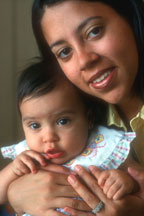A child must be supported by their parents until the child turns 21.
If the child lives with one parent over the other, the parent who resides with the child is considered the custodial parent. Child support is a right that belongs to the custodial parent and it does not matter if the custodial parent has funds of their own. Child support is determined by the Supreme Court in a divorce action or by Family court if the parties are not married. The parties can also agree to the amount of child support but the agreement must be formal or the court may not accept it.
And child support is determined through a statue called the Child Support Standards Act. This guideline helps to calculate the “basic” child support obligation amount that the noncustodial parent pays in child support.
First you start with the noncustodial parents income and then you make certain deductions such as Social Security or city tax, then you multiply that total net income by 17% for one child, 25% for two children, 29% for three children, 31% for four children, and at least 35% for five or more children.
If the noncustodial Parent has a child from another marriage and has a child support order in place, the amount stated in that child support order will also be deducted before child support is calculated for any new children of a bee relationship.
In addition to that, daycare and medical expenses and other educational expenses will be added to the basic child support discussed above. The parties are also responsible to provide health insurance.
Usually the the amount of income upon which child support is based is the combined income of both parents up to $154,000. However, the courts have some discretion in terms of child support and will need to consider the needs of the children, the ability to pay, and the income of the other party. Generally speaking, the courts will apply the child support Sanders it.
However, for income over $154,000.00, the court has discretion to either use the standard guideline percentage or use other considerations in setting forth child support totals.
When you go to court to seek child support, be sure that you bring an acknowledgment of paternity with you which establishes your relationship to the child and also bring copies of either your marriage certificate or other child support orders which need to be taken into consideration.The court will also want to see your income tax information paystub.s and bank records and the court will ask you to fill out a financial disclosure statement. Both parties will need to exchange financial disclosure statements. Both parties will also need to exchange tax returns and pay stubs and W-2 forms.
You file your petition in Family court. The petition will have to be served on the noncustodial spouse or party.
When you file your petition, be sure to attach to the back your acknowledgment of paternity. This is especially important when you are not married. However, if you are filing in Supreme court in the context of a divorce, you do not need to attach your acknowledgment of paternity. Your child support application will be in the form of your summons with notice and verified complaint. Your attorney can also ask for temporary child support relief pending the outcome of your divorce.
If you are collecting your child support through the support collections unit, every two years the support collections unit will review your case and assess a cost-of-living increase to the amount of child support owed to you. If you.re collecting your child support through the SCU, be sure to keep them up-to-date as to your current address, telephone number and all applicable Social Security numbers.
In New York, the child support enforcement unit and the support collections unit helps collect child support for you but you must register for the services and sometimes there is a low fee. In your divorce case, make sure that the divorce judgment says that all child-support will be paid by and through the child support collections unit. If however you trust your spouse to pay you directly you can do that also. You can also ask for your spouse to wire the money directly into your account or to have his employer wire the money directly into your account.
Any parent can apply for child support services but there is a fee.
Your support collections unit can enforce your child support order if you register it and can provide for automatic payroll deductions from the noncustodial parent. There are other measures that can be taken to enforce a child support order. A judge may also suspend driving privileges if a noncustodial parent refuses to pay a child support order. A judge can also issue an arrest warrant in extreme circumstances upon a showing of willful nonpayment. Another good idea is to appear in court, obviously when you are summoned to do so by a support magistrate in Family court. They are, you will be able to dispute child support amounts based on your representations to the court. If you do not appear in court, and arrest warrant may be issued against you and the court will decide the amount of child support irrespective of your were actual income.
To conclude, if you are summoned by any court make sure you were up here or there will be consequences.


